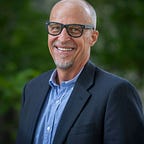There Is No One-Size-Fits All Solution to the Gun Violence Epidemic
New research will uncover actionable data on the impacts of gun violence in the LGTBQ community
What started as a national outcry around school safety in the wake of the tragic shooting in Parkland has sparked a national conversation about the many ways gun violence impacts young lives. Advocates like Naomi Wadler, Edna Chavez and African American students from Marjory Stoneman Douglas High School have called attention to gun violence that might not normally make the news, but impacts urban communities of color every day. As their powerful stories and activism have demonstrated, diverse voices are essential to making our schools, homes and communities safer for everyone.
The truth is, there is no one-size-fits all solution to the gun violence epidemic. Gun violence impacts each of us and our communities in different ways. And we must understand these differences in order to uncover solutions that work.
This was evident to me after 49 people were killed at the Pulse nightclub in 2016 in an attack that specifically targeted the LGBTQ community. While working on the national scene for gun reforms, I had the privilege of escorting a survivor of that tragedy around Capitol Hill to speak with members of Congress about solutions to gun violence. Afterwards, I began asking LGBTQ organizations what they knew about the impact of gun violence in their community. I heard tragic stories about suicides among LGTBQ teens, hate crimes and the senseless murders of transgender women — all preventable, and all involving guns. What I did not find was any research on how gun violence impacts the LGBTQ community.
How can we as a society tackle a public health problem if we don’t know the extent of the problem we are dealing with? The lack of baseline data on the intersection of gun violence and the LGBTQ community is incredibly troubling.
When I left Washington, D.C. in October 2016 to become the Executive Director of the Hope and Heal Fund, this research gap weighed heavy on my mind. We decided early on to invest in actionable data that uncovers solutions to gun violence. And we’ve made research on gun violence in the LGBTQ community a top priority.
Today, we are announcing an important grant to the Williams Institute at UCLA to uncover all the information that exists on the subject and, more importantly, recommend the next steps to fill research gaps.
We can’t think of an institution more qualified for this project than the Williams Institute, which is dedicated to conducting rigorous, independent research on sexual orientation and gender identity law and public policy. The Williams Institute is a leading research voice in the LGBTQ community and they produce high-quality research with real-world relevance. This project will lift up the experiences of LGBTQ Californians and provide the roadmap to data we need to uncover solutions and save lives.
There is no one-size-fits-all solution to gun violence. But as we begin to more fully understand the scope of the problem, we can create safer communities in California and across the nation.
To learn more about the Williams Institute and their important work, visit williamsinstitute.law.ucla.edu/.
Brian Malte is the Executive Director of the Hope and Heal Fund, the only state-based donor collaborative that pursues a public health, community-based, racial equity-driven approach to gun violence prevention.
